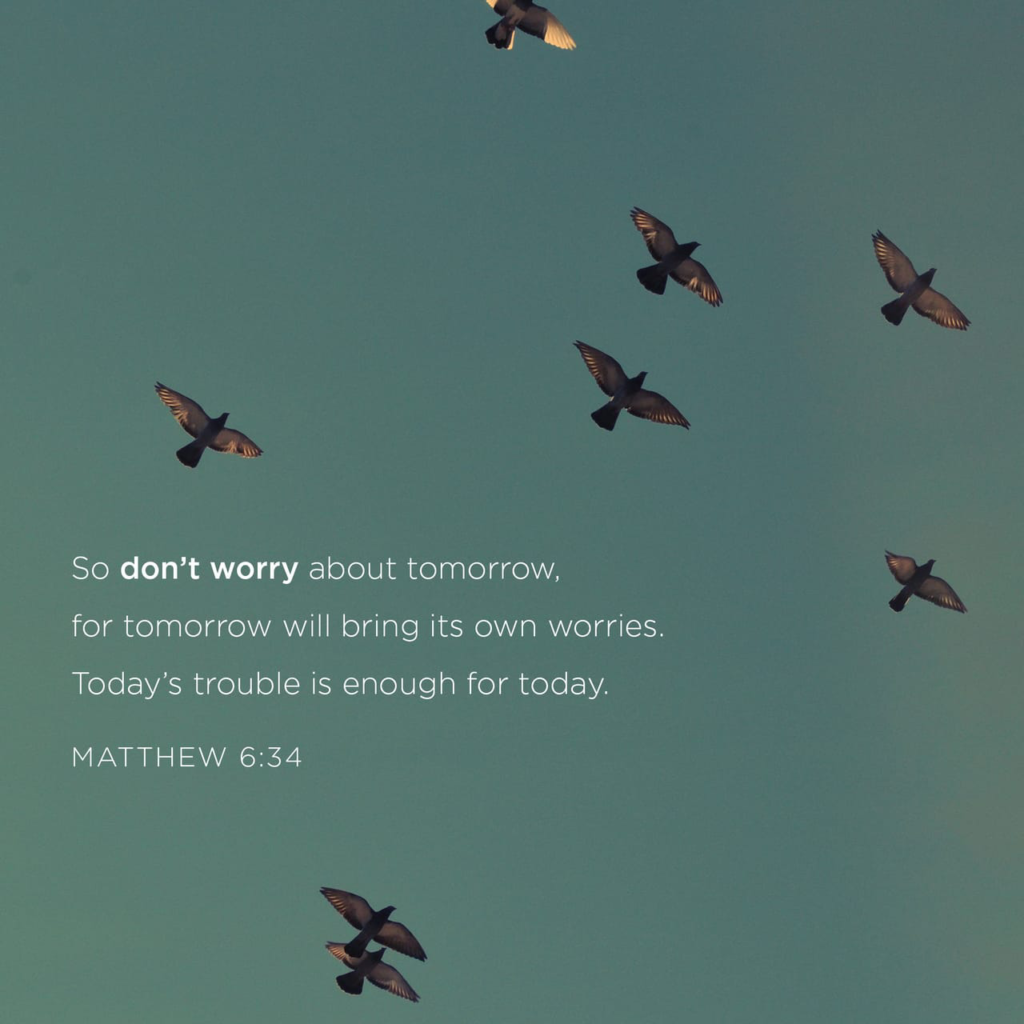Can worry ever be helpful? My guess is that your instinctive response is to roll your eyes and say no. To be honest, worry has a pretty bad reputation, and for good reason. Worry often looks like endless negative ruminations. It can look like catastrophizing the future. It can lead us to unnecessary fear. It can get us stuck in endless thought loops, like a car spinning its tires in the mud but going nowhere.
I often find, though, that worry can be broken into two categories: helpful and unhelpful. Helpful worries are those that bring an important thought into our consciousness: something that needs to be dealt with and not avoided. For instance, if I anxiously remember that I’ve forgotten to tell my husband to pick up my son from school, that would be a helpful worry. It’s something that needs to be dealt with, and for which a plan needs to be made. It is not something I should avoid, though the situation may be creating anxiety inside of me. Another example might look like worrying about a confrontation or a hard conversation with someone that I love. This worry can be helpful, because the discomfort of my anxiety may be compelling me towards reconciliation in my relationship.
Helpful worries drive us to think about and make plans for dealing with the hard and uncomfortable parts of life.
On the other hand, unhelpful worries are thoughts about the future over which you have no control. Worrying about how your plane might crash, how you might have cancer in the future, or how long it will take the next virus epidemic to reach your neighborhood definitely classify as unhelpful worries. These thoughts lead to unneeded anxiety and cause our brains and bodies to react negatively. I’m certain that these sorts of worries are what Christ talks about in Matthew 6 when he warns us not to worry about what will come tomorrow.

Many years ago, when I was still only a mother of two children rather than four, our family moved to a new house. It was a dream come true for our family, as it provided more space, it was closer to family, it had a huge yard in which my children could play, and it came complete with a tiny goldfish pond made from a recycled old church baptismal. Therein began my worry.
Before we had even moved in, I woke up in the middle of the night, heart pounding from a nightmare about the pond. In my dream, my oldest child toddled into the pond (which looked substantially larger in my dream) and drowned. When I awoke, the dread began. I talked it over with my husband, and we came up with many rules for the pond.
- Do not play next to the pond.
- Do not stand next to the pond or feed the fish unless Mommy or Daddy are with you.
- Do not get in the pond.
- Do not bend over the pond looking at the fish.
After a few months went by and no incidents occurred, my anxiety decreased. In fact, the only problem we ever seemed to have was with our wild and fearless second-born, who always, even to this day, acts before he thinks. He lives to experience the world with all of his senses. Many times we found him leaning over, touching the water. Still, two years passed after we moved in, and no real incidents occurred.
One day I returned home from work, and my five year old came running out of the house to tell me about his day. With exuberance, he told me how while Daddy had been looking elsewhere, his little brother had fallen in the pond. Quick as a wink, he ran screaming to tell his Dad, who ran over and pulled our little guy out soaking and squirming. No harm had been done, but he was definitely frightened. In fact, he didn’t try to play in the pond again for quite some time. Sometimes experience teaches better than warnings…
However, the scare definitely increased our plans to better secure the pond. At this point, my worry could have taken a turn towards unhealthy fear and endless ruminations. Instead, it spurred me to action. Our children were soon put in swimming lessons after that incident. In fact, for years afterwards, the pond was filled in while we pursued our foster and adoption license due to license restrictions about water around our home. More importantly, I came away from that incident knowing that even when I wasn’t there to protect my children, God was watching over them. As children of the Most High, we are promised that He watches over us and protects us. As I John 4:18 says, “There is no fear in love, but perfect love casts out fear.”

Pause: Find a few quiet moments and reflect on Matthew 6:25-34. What stands out to you about anxiety and worry? How does this relate to your own life?
Renew: In thinking about your own list of current worries, which would you classify as helpful, and which feel most unhelpful? Why?
Next: This week, as you find yourself worrying, quickly decide if that worry is a helpful or unhelpful thought. If it could be helpful to make a plan regarding that worry, go for it! Then, give your worries to God, journal about them, talk to a trusted friend or counselor, and try to shift your thinking.
May we live in peace, free from the worries that drag us towards unhealthy fear.
Pause, Renew, Next!
